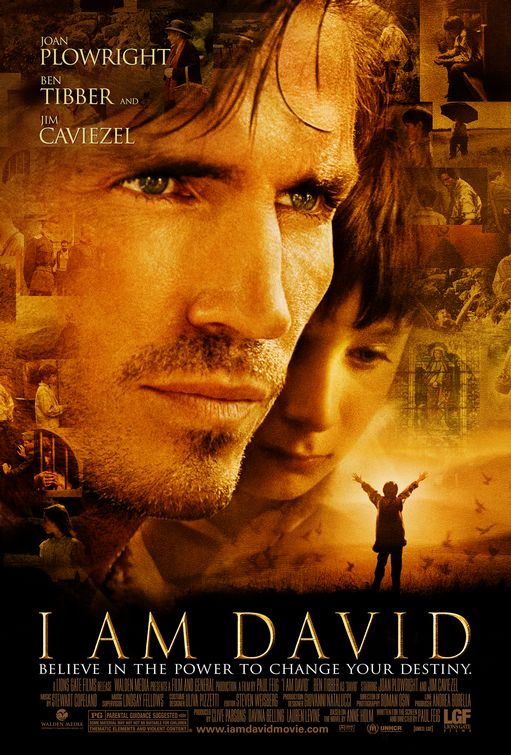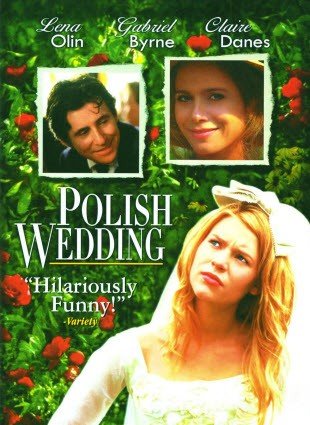“Mother Worship”

| None | Light | Moderate | Heavy | |
|---|---|---|---|---|
| Language | ||||
| Violence | ||||
| Sex | ||||
| Nudity |
What You Need To Know:
POLISH WEDDING is a slice-of-life drama about a working-class family living in the Polish section of Detroit. In the family, the beautiful mother of five children cheats on her husband while the daughter explores her sexuality with a young policeman. The daughter’s parents married when the wife became pregnant with their first child, and the daughter gets married in the movie after she becomes pregnant. The father is afraid of confronting his adulterous wife for fear of being alone, but the wife decides to end her affair when she realizes that the children she shares with her husband mean more to her than her lust.
POLISH WEDDING celebrates the life-giving spirit of womanhood. It opens with famous pictures of the Virgin Mary with the baby Jesus. Its two main female characters portray this theme in a selfish, seemingly blasphemous, way, however, even though the movie rebukes the adulterous affair of the mother. As the mother says at one point, “Making life and love, that’s my religion.” Thus, the movie takes a hedonistic attitude toward motherhood, despite some moral elements and even a few Christian ones. Also, the quality of the movies, the memorability of the characters and the movie’s entertainment value are not impressive.
Content:
(Pa, B, C, AC, L, V, SS, NN, A, DD, FR, M) Pagan, hedonistic worldview with moral, Christian & anti-Christian elements; 4 obscenities, 4 profanities, 1 blasphemy, & 2 lewd gestures; threats of hitting & people pull man out from house in struggle; implied ongoing adultery & fornication, & one heavy petting scene; upper male nudity & pictures of nude Renaissance paintings arranged in a blasphemous connotation; alcohol use; much cigarette smoking, including smoking by a pre-teenage child that is not rebuked by the boy’s father; and, one statement of false religion & story elements that seem to be blasphemous supports for that statement, religious hypocrisy & selfishness.
More Detail:
POLISH WEDDING is a slice-of-life drama about an estranged Polish family living in Detroit that celebrates the life-giving spirit of womanhood. Its story is filled with vignettes of family interaction that don’t amount to all that much beyond this. Despite its title, it also offers little insight into the ethnic heritage of the family’s culture.
Most of the story circles around the mother and daughter of the Pzoniak family, Jadzia and Hala, played by Lena Olin and Claire Danes, respectively. Hala is a high-school dropout who regularly sneaks out of the house at night, apparently to explore her sexuality and just to get away from the crowded conditions at home. Hala’s main attraction is the local neighborhood policeman Russell, played by Adam Trese. Jadzia is a beautiful cleaning woman (one of the movie’s incomprehensible plot points) who is having a long-term affair with one of the executives where she works. Her husband, Bolek, played by Gabriel Byrne, owns a small bakery. He is afraid to confront Jadzia about her ongoing adultery, apparently for fear of losing her. “Where should I go if I were free?” he asks Hala. “Who would feed me?” Besides Hala, Bolek and Jadzia have four sons living with them, a daughter-in-law and an infant grandchild. They hardly see one another because Jadzia works during the day, and Bolek often works at night baking bread.
After setting up these situations, the movie shows the family sitting in church. Their Roman Catholic priest announces that Hala will play the virgin in the parish’s annual festival for the Blessed Virgin Mary, the mother of Jesus Christ. Shortly thereafter, Hala learns that she is pregnant by Russell. She hides it from everyone but her little, cigarette-smoking brother, who helps her escape at night. Eventually, her mother Jadzia finds out, and Jadzia reveals that, just as Hala and Hala’s sister-in-law became pregnant before marriage, so did Jadzia. So much for traditional family values.
The movie ends on a happy note, however. Jadzia ends her affair and reconciles with Bolek. Hala marries Russell, and the members of the parish pay tribute to Hala’s motherhood at the festival for Mary, despite her sexual immorality.
POLISH WEDDING is a celebration of motherhood with a pagan subtext. It opens with pictures of famous Madonna paintings showing Mary with the baby Jesus intermixed with what look like Renaissance nude paintings. The last shot of the movie shows Hala giving her baby a bath in the backyard while her mother Jadzia and her husband Russell watch. At one point, Bolek asks Jadzia, “Don’t you believe in anything more important than yourself, like religion and God. Jadzia tells Bolek, “Making life and love, that’s my religion.”
At another point, Jadzia tells her lover after he asks her if she wants to stay a cleaning woman, “I have five children. I’m a queen in my house.” “If you are Queen,” he asks, “then why are you here?” Jadzia is taken aback by this question, and she asks herself, “Oh, Mother in Heaven, why am I here?” It is at that point that Jadzia gives up her affair and returns to her family. Thus, it is Jadzia’s recognition of her role as mother that ultimately saves her marriage to Bolek.
Even the congregation in her family’s church recognizes the importance of motherhood. They show reverence Hala’s motherhood, even though the priest is really angry with her performance at the festival for the Blessed Virgin.
Motherhood is indeed a valuable institution created by God, but Jadzia and Hala treat the concept in a pagan, hedonistic way, for their own selfish reasons. There is also a lack of orthodoxy in the Roman Catholic festival celebrating the Virgin Mary when the priest intones, “Tender giver of life. We are your children. Intercede for us.” The Virgin Mary may be a role model for Christians, but Christians have only one mediator between them and God the Father – His divine Son, Jesus Christ.
Thus, although POLISH WEDDING has some positive elements, and even a few Christian ones, it also has a mildly blasphemous, ultimately immoral, spirit. Many viewers will react negatively to that spirit. Also, they probably will not be impressed with the quality of the story, the memorability of the characters or the movie’s lack of entertainment value.


 - Content:
- Content: 

